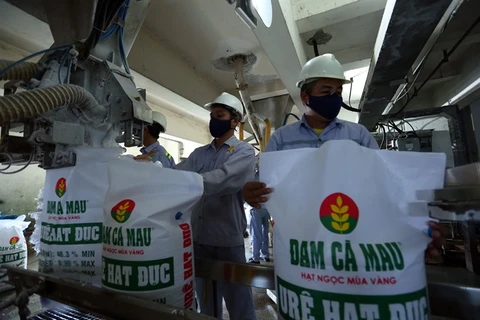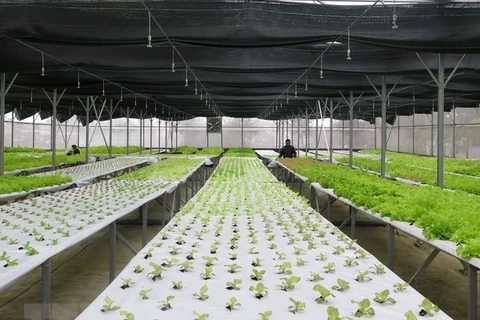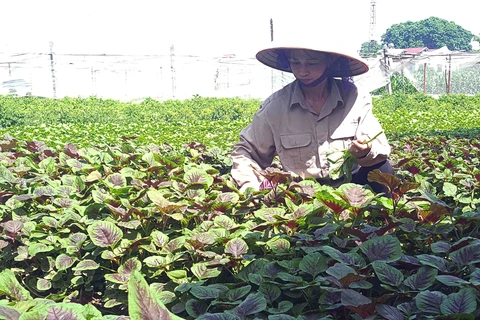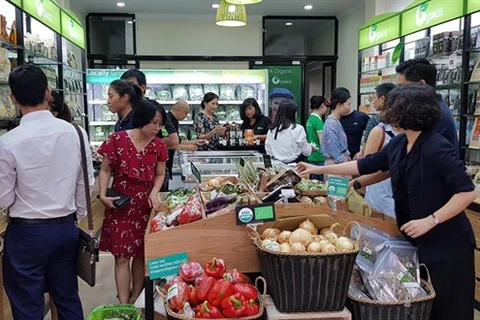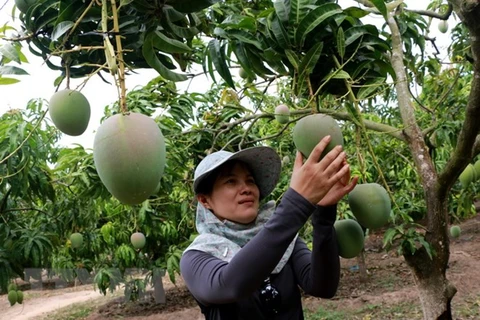HCM City (VNS/VNA) - The rapidly growing demand for organic agricultural produce offers huge potential for businesses to invest in production and develop retail networks, experts said at a recent workshop in Ho Chi Minh City.
Stable economic growth has led to a boom in the food and beverage industry, which accounts for 15 percent of GDP, said Dinh Thi My Loan, chairwoman of the Association of Vietnam Retailers.
Local consumers now consider health and safety as their biggest concerns, Loan said at the workshop, which was held as part of the VietFood & Beverage – ProPack international exhibition in HCM City.
Nielsen Vietnam estimated that the organic market revenue in HCM City and Hanoi is valued at 400 billion VND (17.3 million USD) a year, she said.
“Despite great demand for organic agricultural produce, local consumers do not have easy access to supply. The total farming area and retail networks for organic produce are still modest,” she added. “The supply of organic produce is also unstable and prices fluctuate due to limited organic farming.”
Around 40 businesses apply international organic standards, but most of their products are exported.
Businesses should take advantage of the great potential for organic farming and invest in production and develop retail networks to meet the rising demand domestically as well as internationally, she said.
Hoang Son Cong, an official at the Vietnam Organic Agriculture Association, said organic produce is being sold at most supermarkets, but the prices are still high and there is often a shortage.
Most fresh food and vegetables at traditional markets have no labels identifying their origin, Cong said.
The shortage of local organic products offers an opportunity for foreign producers to expand businesses in Vietnam.
Kindergartens and primary schools which have a high demand for safe and nutritious food are also potential markets for organic food and produce, as is the online trading network for the apartment community in HCM City and Hanoi.
The country is home to 33 facilities that have adopted the organic farming model, with more than 1,100 hectares set aside for rice farming, 90 hectares for vegetables, and 284 hectares for grapes and 79 hectares for apples.
The central province of Ninh Thuan leads the country in organic farming area, with a total of 448 hectares.-VNS/VNA
VNA

